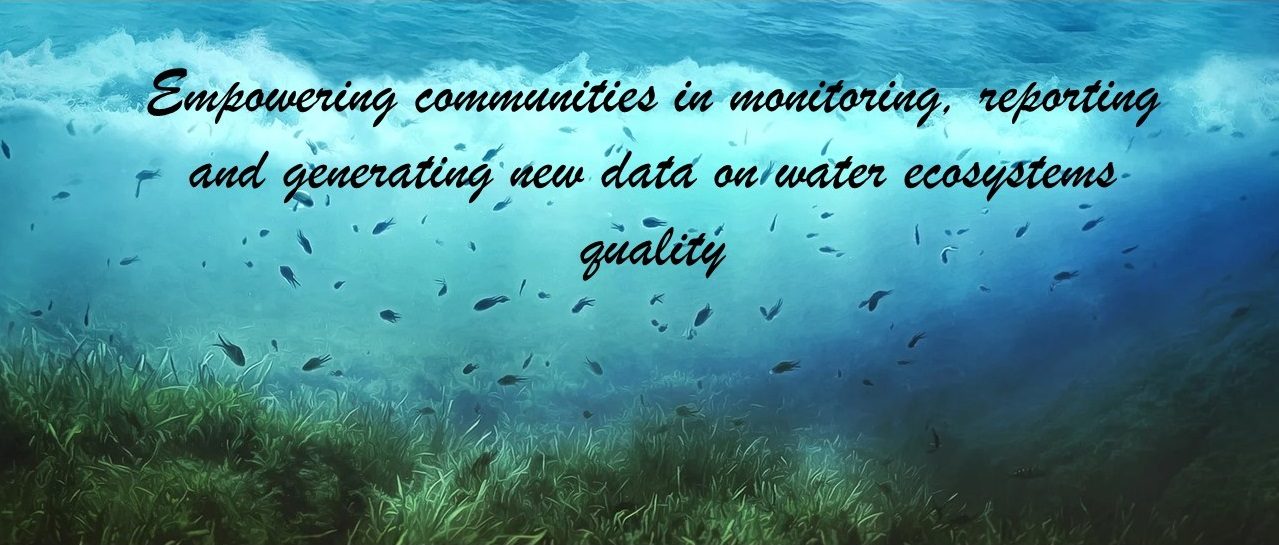Aquatic ecosystems play a fundamental role in providing health, climate regulation and cultural services. In recent years, the public played a central role in generating and contributing to scientific knowledge. A productive partnership between scientists and the public can increase the temporal and spatial resolution of environmental data, and can provide complementary information regarding water ecosystems. Citizen science is considered as an effective framework to share understanding of environmental issues, increase environmental awareness, re-connect people to nature and promote pro-environmental attitudes. Despite these implications, public participation at national scale is limited, while at international scale there are several unanswered issues with regard to citizen perceptions, dynamics, sizes and types of volunteer pools, cost and benefits of actions. The general aim of the project is to build citizen capacity in reporting and monitoring water pollution and to promote community active involvement in raising awareness, education and decision making. The project strategy is to develop a user-friendly and free platform for collecting water related data, on long-term using a predefined set of tools. Citizen perception on the programs and their relationship with the environment will be evaluated. Based on a non-traditional approach, an opportunistic sensing model will also be developed by analyzing crowd-generated data from social media content to extract information regarding water related issues. The outcomes of the project will contribute with deeper understanding of the public-expert relationships, will enable two-way dialogues between various stakeholders, will offer citizens an opportunity to voice concern regarding water issues and ecosystem services loss, and will enhance understanding of citizen perspective in participating to citizen science projects.
Contract No. 61/2020
Project Code: PN-III-P1-1.1-TE-2019-0789
